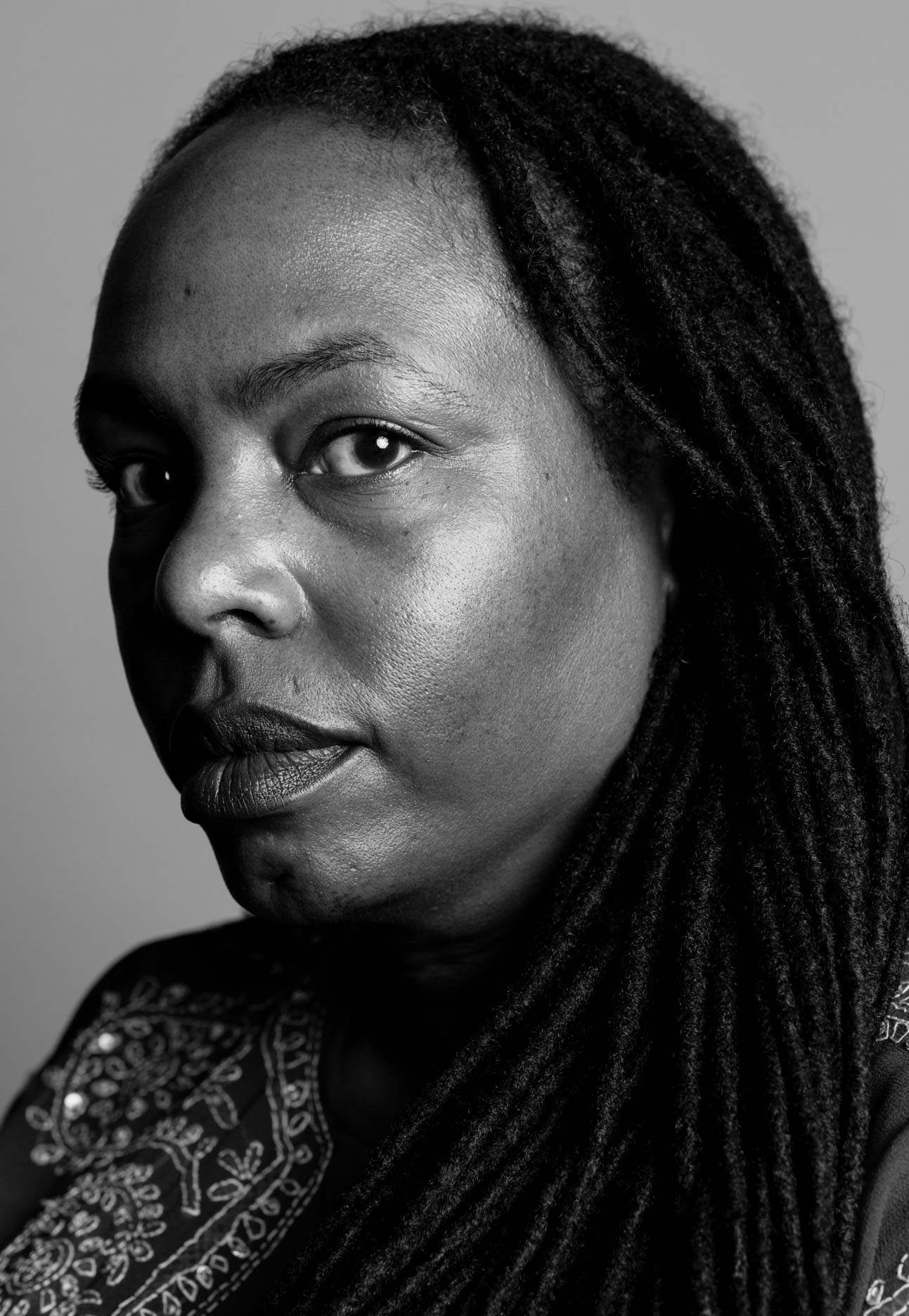
The transition point in Dana Johnson’s life came at 31, when she won the Flannery O’Connor Award for a short story she’d written during her MFA program at Indiana University.
More than its prestige and promise of a badly-needed check for the broke grad student, the award ended a period of questioning for Johnson. No longer would she wonder whether she was writer material, or whether this plan to get a masters degree was the right move.
“All the work I’d done had come to fruition,” she says. “It was amazing.”
The short story made it into her first book, Break Any Woman Down, and her success set her on a path of writing and teaching that continues uninterrupted to this day. And though the life of a writer is one marked by constant self-examination and, sometimes, worry, she’s spent the 20 years since that first breakthrough using it as a tool of exploration.
“I feel like the goal is to tell as many stories as we can before we’re no longer here,” she says. “It’s not attached to the body, or looks, or not even accomplishments in the past. It’s like, ‘What am I looking at today? What am I trying to think about, to explore?’ You don’t necessarily get the answers in fiction, but its exploration can be illuminating.”

It wasn’t writing, but reading that became her first, preferred method of discovery. She remembers her father chiding her for sitting at the table with others, her nose in a novel. Spending her early years in South Central LA roiling from the danger of gang warfare, and the second part of her childhood in the tranquil, and white, suburbs of San Gabriel Valley had given her plenty of material to examine.
Instead, she opted for life as a copy editor at a law journal in Los Angeles upon graduating USC, a job she loathed.
“In order not to hate life, I took some writing classes at USC extension,” she said. A professor there liked her style and encouraged her to take her writing seriously. But taking a writing class and enrolling in a Master of Fine Arts program were two different things.
“There was this question of, ‘How useful is an MFA degree?’ ” she says. “But for someone like me, who comes from a working-class background with parents that aren’t artists, that aren’t writers, it opened up a whole new world for me: what a writer was, who to read, traditions and literature, craft. That meant something to somebody like me who comes from folks who are mostly factory workers.”
She took every assignment seriously, throwing herself into her work and wanting her stories to impress.
“It was more urgent for me, because I was soon to be 30,” she says. “If I didn’t do this, what was I going to do?”
The urgency and focus helped set her path and that’s a common trait among our group. It’s so hard to find that one thing you’re truly passionate about and dedicate yourself to it; timing is so crucial in that process. Among the graduate students she teaches today at USC, there have been a few who have turned to writing later in life. Johnson sees no issue with that at all.
“I had natural talents, which was voice and dialogue; my parents are southern, and I like storytelling in general so I had that on my side,” she says. “I’m so glad I went later life because had I [started] in my early 20s I wouldn’t have known what my material was.”
These days, she finds her focus is less on age as a subject but in experimenting in voice and methods. There was no tidal shift when she turned 50.
“I went out for a drink and called it a day,” she says. “It wasn’t a funeral of the past me, or a celebration of the upcoming me. It was like, ‘Thank God I’m still here. I still have work to do.’ ”
AGEIST Insight
Being among students also serves to keep her on the cutting edge of what is happening in the culture. It’s something almost all our people have in common: strategies for staying connected. Some of us do it with our children, or grandchildren, others through younger co-workers: asking them about what they are listening to, what is important to them, keeping an ear out for the insights that only a younger person can provide.
For Dana, there is no need for a strategy. Simply being in a college environment means that she will be the first to hear about the big culture moves that will eventually become part of our daily lives. One of the enriching side benefits that has come from following her sense of what would make a good life.
The ideas expressed here are solely the opinions of the author and are not researched or verified by AGEIST LLC, or anyone associated with AGEIST LLC. This material should not be construed as medical advice or recommendation, it is for informational use only. We encourage all readers to discuss with your qualified practitioners the relevance of the application of any of these ideas to your life. The recommendations contained herein are not intended to diagnose, treat, cure or prevent any disease. You should always consult your physician or other qualified health provider before starting any new treatment or stopping any treatment that has been prescribed for you by your physician or other qualified health provider. Please call your doctor or 911 immediately if you think you may have a medical or psychiatric emergency.


